Jürgen Escher, Germany
North Korea: The dictatorship of scarcity
We see orphans huddled together to keep themselves warm in a cold room. We see Ri, a feeble old grandmother who refrains from eating so that her grandchildren can. We see feverish, malnourished Kim who might find solace in the hand laid on her, but who still lacks medicine to get healthy again. At the inpatient ward of the People’s Hospital in South Pyongan Province, mothers fear for the lives of their children since there’s no medicine whatsoever. Farmers laboriously plant corn by hand in barely fertile ground.
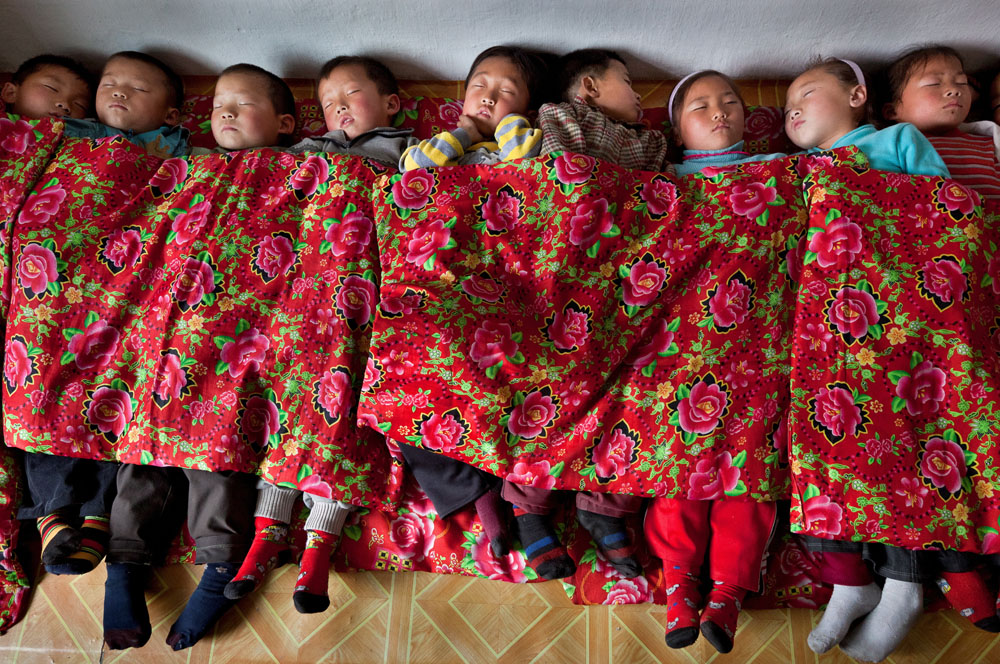 Bild 1 von 12 © Jürgen Escher/Laif
Bild 1 von 12 © Jürgen Escher/Laif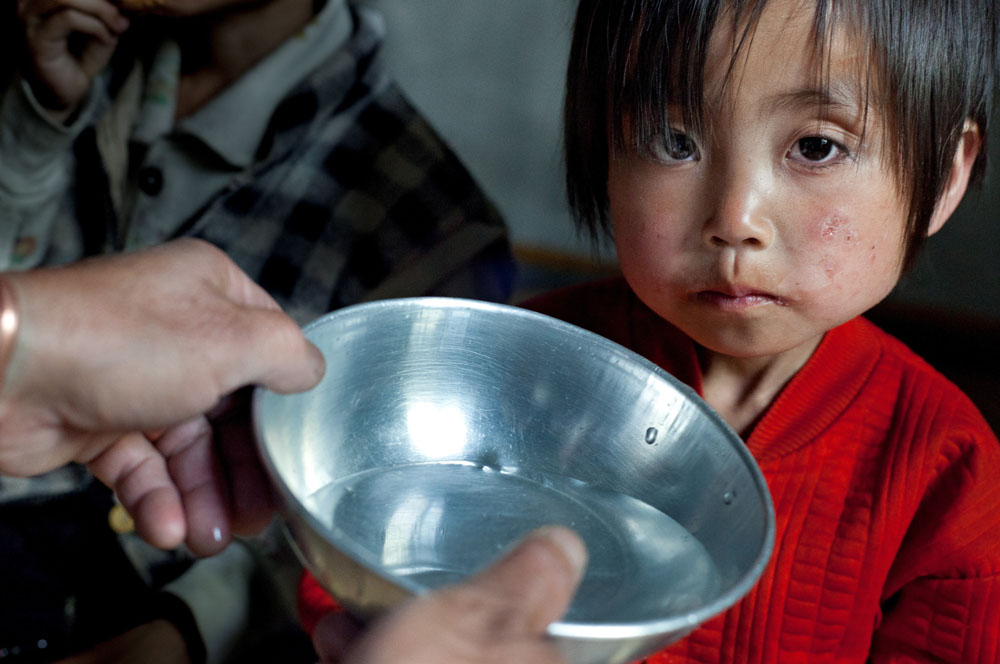 Bild 2 von 12 © Jürgen Escher/Laif
Bild 2 von 12 © Jürgen Escher/Laif Bild 3 von 12 © Jürgen Escher/Laif
Bild 3 von 12 © Jürgen Escher/Laif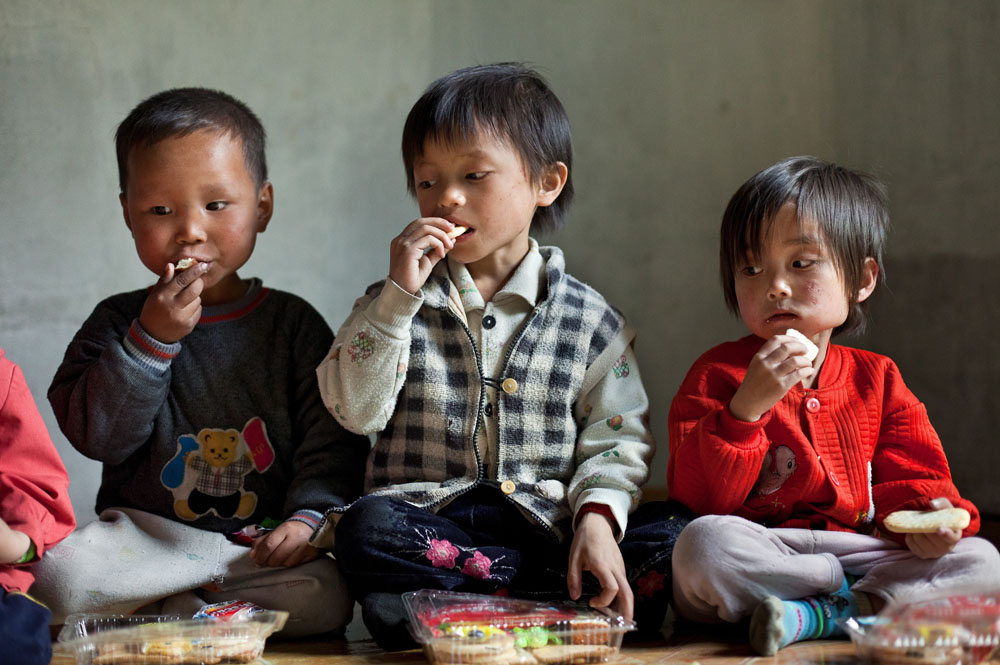 Bild 4 von 12 © Jürgen Escher/Laif
Bild 4 von 12 © Jürgen Escher/Laif Bild 5 von 12 © Jürgen Escher/Laif
Bild 5 von 12 © Jürgen Escher/Laif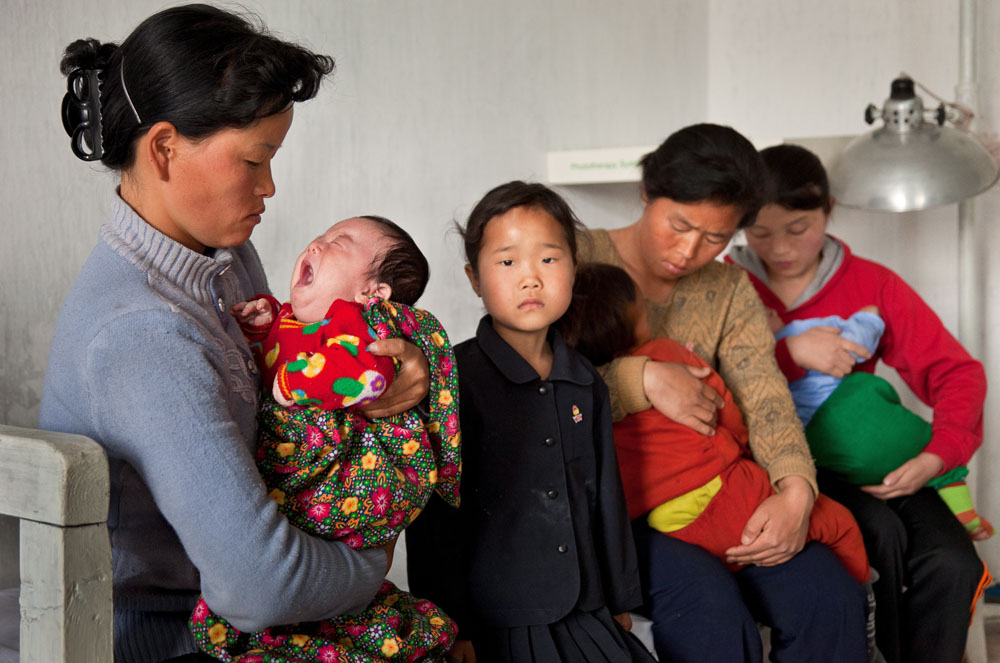 Bild 6 von 12 © Jürgen Escher/Laif
Bild 6 von 12 © Jürgen Escher/Laif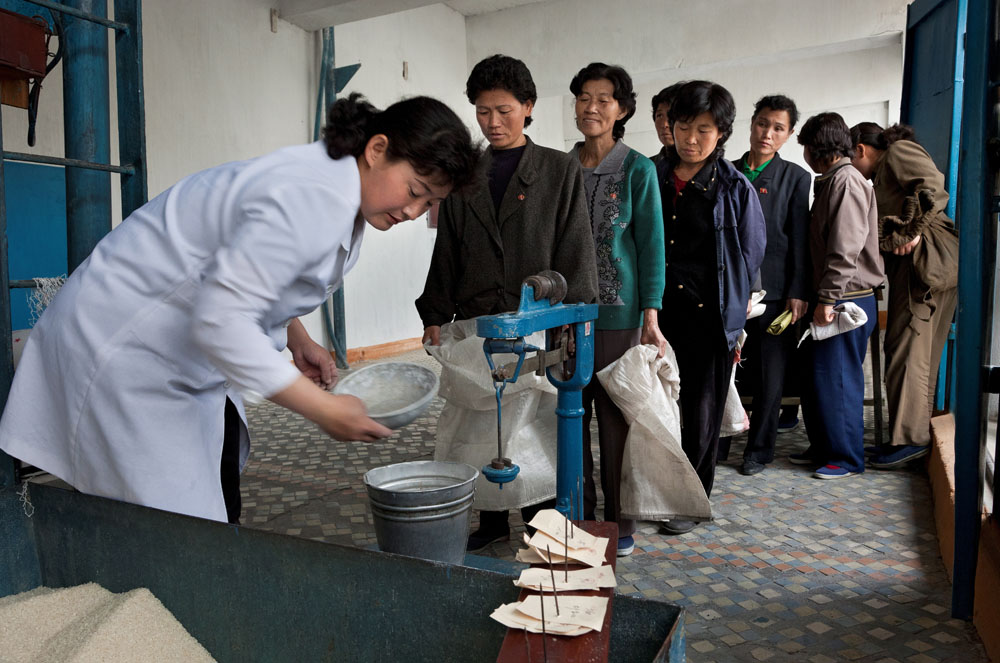 Bild 7 von 12 © Jürgen Escher/Laif
Bild 7 von 12 © Jürgen Escher/Laif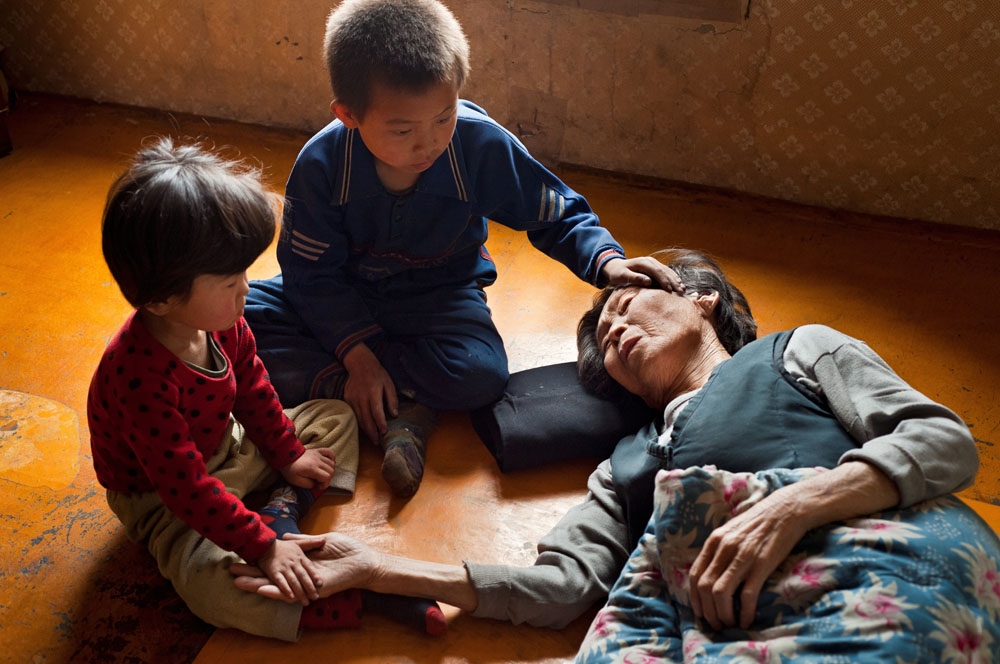 Bild 8 von 12 © Jürgen Escher/Laif
Bild 8 von 12 © Jürgen Escher/Laif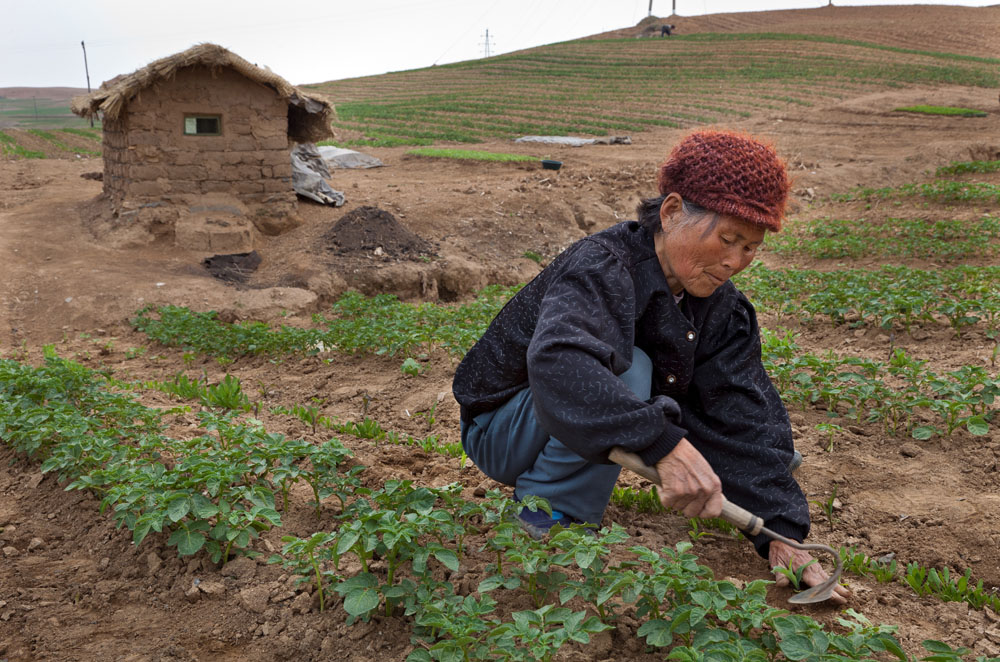 Bild 9 von 12 © Jürgen Escher/Laif
Bild 9 von 12 © Jürgen Escher/Laif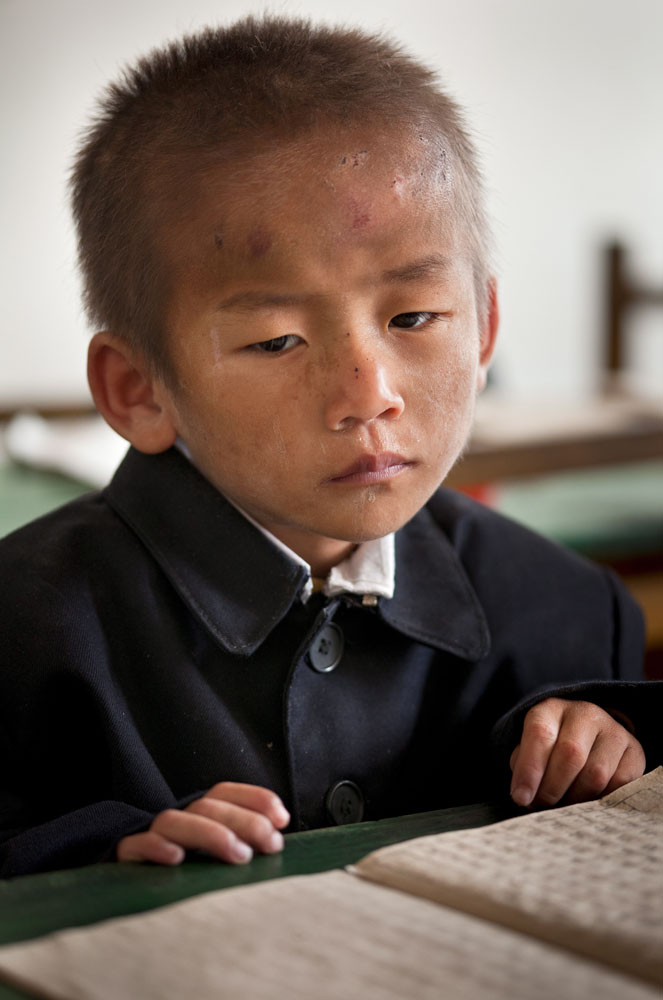 Bild 10 von 12 © Jürgen Escher/Laif
Bild 10 von 12 © Jürgen Escher/Laif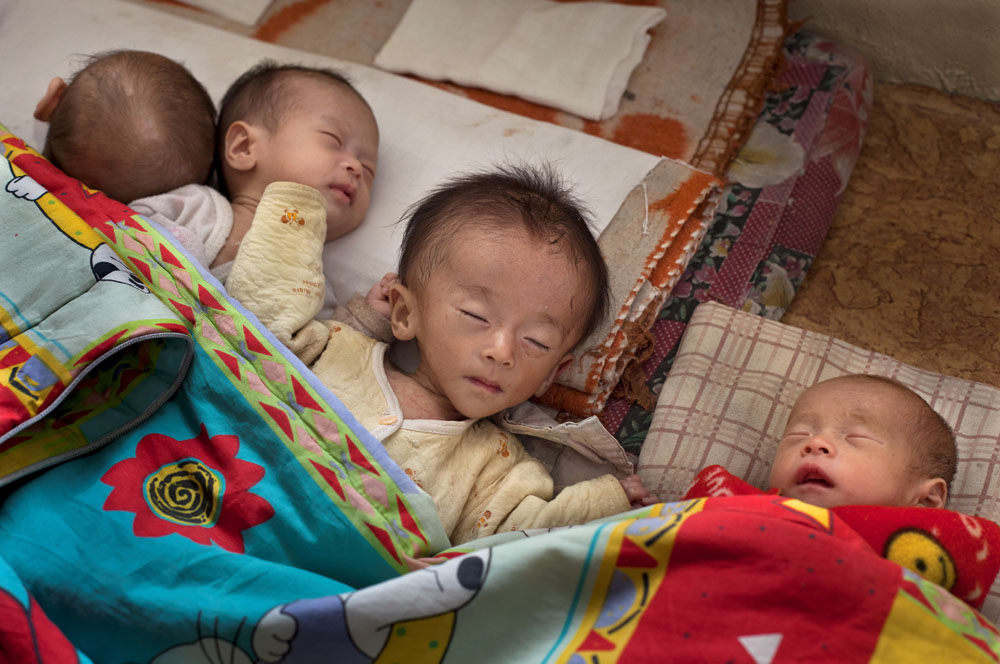 Bild 11 von 12 © Jürgen Escher/Laif
Bild 11 von 12 © Jürgen Escher/Laif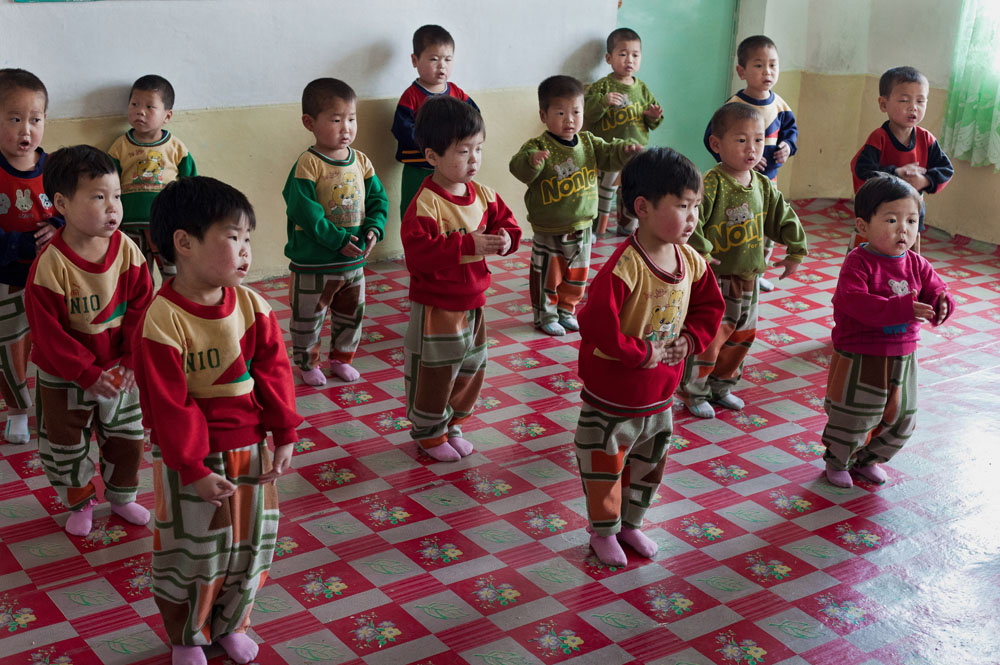 Bild 12 von 12 © Jürgen Escher/Laif
Bild 12 von 12 © Jürgen Escher/Laif
In the North Korean capital, Pyongyang, old people desperately search fallow grounds for edible herbs. Emaciated people, empty warehouses, no energy supply: North Korea’s communist elite has mercilessly watched for decades as the people are stripped of their rights and their food.The regime allows food aid only in the case of the most dramatic of emergencies, such as in May and August 2011, when the aid organization Cap Anamur was allowed to bring rice and beans into the country. Cap Anamur provided the food supplies under the following condition: to be able to determine the recipients themselves and to allow the German photographer Jürgen Escher to document his impressions. He was particularly shocked when he saw the stunted growth of children due to chronic malnutrition.
Food aid alone cannot solve the problem of malnutrition since the entire health system is incapable of providing help to the people. For many years now, UNICEF has been one of the few international organizations present in North Korea and is supporting rehabilitation centers for undernourished children as well as approx. 2,800 health stations. UNICEF also carries out information campaigns aimed at parents since they often don’t know how critical their children’s state of health really is. Which is not surprising – as the typical symptoms of malnutrition, such as stunted growth and underweight, are commonplace.
Curriculum Vitae: Jürgen Escher
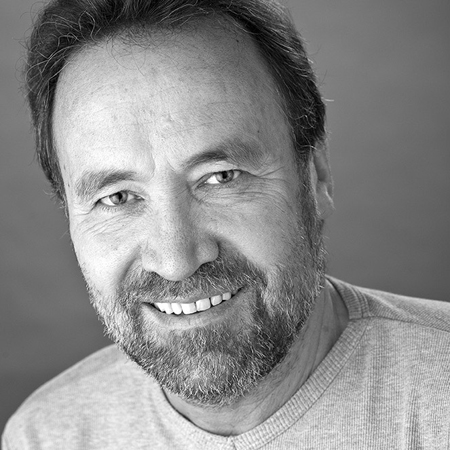
Jürgen Escher, born in Herford in 1953, father of two adult children, studied Photography at the University of Applied Science in Bielefeld between 1977 and 1983. He developed his diploma thesis in cooperation with Prof. Jörg Boström.
Jürgen Escher is working as a freelancer and designer for several organisations, publishing houses and editorial offices and is developing his own projects since 1983.
He was entrusted with a lectureship for photojournalism at the University of Applied Science in Bielefeld between 1987 and 1992 and was appointed to the German Academy for Photography (Deutsche Fotografische Akademie) in 1989.
Together with 125 Photographers he founded the professional association Freelens in 1995 and has become a member of the board in 2010.
His work was honored with scholarships by the Cultural Society (Kulturwerk der VG Bild-Kunst) in 2003, 2007 and 2010.
Jürgen Escher is the author of numerous book publications and his photographic work is on show in several single- and collective exhibitions in Europe.
book publications (extract):
- Ein Tag Deutschland. Freitag, 7.Mai 2010. FreeLens bei dpunkt.verlag 2010
- „Ich heiße ... und möchte ... werden.“ TPK- Verlag, Bielefeld 2010
- „Wir freuen uns und wir weinen...“ TPK-Verlag, Bielefeld 2010
- Begegnungen. Momente zwischen Fotografie und Wort. Bonifatius-Verlag, Paderborn 2008
- ...für mich Heimat bedeutet. Schaden-Verlag, Köln 2008
- Lebenhelfen, Komitee Cap Anamur/Deutsche Not-Ärzte e.V.,Köln, Lindemanns,Stuttgart 2005
- Hautnah.Berührungen mit Menschen im Herzen Afrikas. Lindemanns,Stuttgart 2004
- Schwarzweiss. Museum MARTa. Lindemanns Buchhandlung, Stuttgart 2001
- One World. Fotografische Wirklichkeiten. Essen, Lindemanns, Stuttgart 2000
- Humanitäre Radikalität. Komitee Cap Anamur / Deutsche Not-Ärzte e.V., Troisdorf 1988
- Wir.Fotografen sehen die Bundesrepublik. Beltz-Verlag, Frankfurt 1984
- Das Buch der Sinti. Bielefeld. Elefantenpress-Verlag, Berlin 1981
single exhibitions (extract):
- Der Blick des Freundes. Centre Cultural de Rencontre Abbaye de Neumünster, Luxembourg 2010
- Lebenhelfen. Visualgallery at Photokina, Köln 2006
- Hautnah. Weltjugendtag, Stadtsparkasse Köln 2005
- Bilderreise. Grauwert Galerie, Hamburg 1993
- Augenblicke. Biuro Wystaw Artystycznych W Gorzowie, Polen 1990
- Abgeschoben. Galerie Brennpunkt, Berlin 1983
collective exhibitions (extract):
- „abgeschlossen“ Kunst im Zellentrakt, Gedenkstätte Zellentrakt, Herford 2011
- Schwarz auf Weiss. La Folie, Ostbevern 2010
- „die nacht“-1.photograhy exhibition, galerie f:7.2, Mönchengladbach 2008
- Erinnerungsräume. Fachhochschule Trier 2007
- Sammlung MARTa Herford- Eine Auswahl, Museum MARTa, Herford 2005
- Nähe/Fremde. Deutsche Fotografische Akademie, Stuttgart 2004
- Spurensuche. Landtag Nordrhein-Westfalen , Düsseldorf 2002
- SchwarzWeiß. Mücsarnok, Budapest, Ungarn 2002
- SchwarzWeiß. MARTa, Herford 2001
- Noorderlicht. Fotomanifestie Sense of Space, Groningen, Niederlande 2001
- Erzählungen.Foto-Essays. 2. Internationale Fototage Herten 1993
- Wir.Fotografen sehen die Bundesrepublik. Kunsthalle Bielefeld 1985
- Wir.Fotografen sehen die Bundesrepublik. Frankfurter Kunstverein 1984
- Stilleben.Museo de Arte Moderno de Tarragona, Spanien 1980